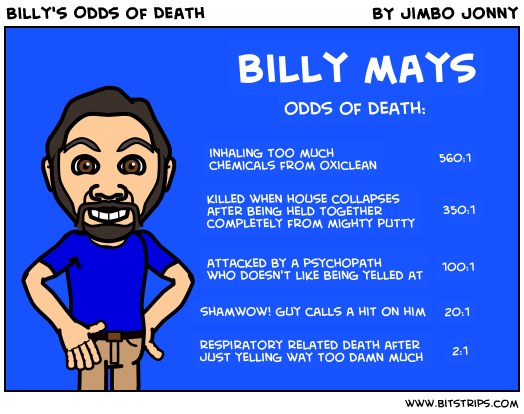Billy Mays, the exuberant pitchman known for his vibrant personality and larger-than-life infomercials, passed away at the age of 50, leaving a gaping void in the landscape of television selling. His untimely demise on June 28, 2009, sparked an outpouring of grief among fans and colleagues alike. The news not only sent shockwaves through the entertainment industry but also ignited a myriad of questions surrounding his health and the circumstances leading to his death.
An autopsy was conducted soon after his passing, an act that often brings clarity yet can also deepen the enigma surrounding a sudden death. Initial reports indicated that Mays was found unresponsive in his home, a scene that unfurled into a tapestry of speculations. Though he had reportedly suffered from respiratory issues before, the autopsy results were anticipated as they promised to shed light on what truly happened, potentially altering public perception of his charismatic image.
The challenges faced by Mays extended beyond the screen. He was a figure who embodied the American spirit of entrepreneurship, his powered salesmanship creating a brand that was unmistakably his own. Viewers were drawn in, not just by the products he sold but by his charismatic delivery, his booming voice a prelude to the promises of effectiveness and value. However, behind the glitzy facade lay complex health struggles, previously unknown to fans who had come to adore him.
As public speculation grew, the autopsy findings revealed an unexpected narrative. Mays suffered from hypertensive heart disease, a condition that contributed to his sudden collapse. While the revelation was troubling, it also encouraged a crucial discourse about health and wellness in individuals who appear larger than life. This stark reminder that celebrities are not immune to everyday health concerns resonated deeply with fans and the general public. It prompted critical conversations around the importance of healthy living, overshadowed by Mays’ dynamic persona in the realm of late-night television.
The autopsy findings were more than mere facts; they redefined the legacy left behind by Mays. His zealous dedication to selling household products was now juxtaposed with the stark realities of the human condition. Viewers were not merely passive consumers; they were challenged to consider their own health and lifestyle choices. Mays, in his death, continued to embody the sincerity that characterized his pitches—a resonance that encouraged coming to grips with mortality and the fragility of life.
In the months following his death, discussions about legacy and health inspired a new perspective within the infomercial industry. Billy Mays’ sudden passing became a catalyst for greater awareness about health issues, pushing a narrative that transcended the world of advertisements. As champions of positivity and tenacity showcased their own vulnerabilities, Mays ultimately fostered a critical dialogue about the authenticity of public personas. He had undoubtedly left an indelible mark on both the commercial domain and on societal attitudes towards health, stirring ongoing reflections about the balance between ambition and self-care.
